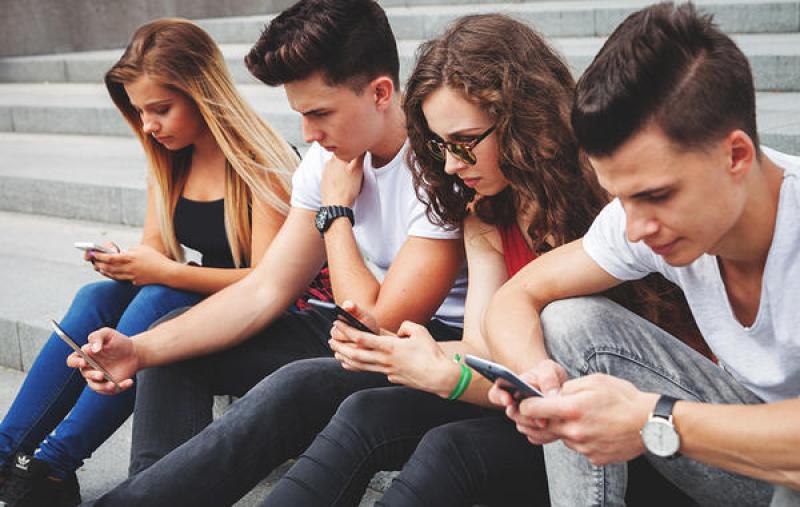Social media has become an integral part of our daily lives. More than 15 years ago, social networking sites began to attract a large number of young people, adolescents, and even adults, as they needed the company of others to thrive in life. Socializing with others can relieve stress, anxiety, and depression, boost self-esteem, provide comfort and pleasure, prevent loneliness, and even add years to your life.
On the other hand, the lack of strong social connections in the real world can pose a great danger to your mental health, as social media can never be a substitute for human communication in the real world.
Personal contact with others also stimulates hormones that relieve stress and make you feel happier, healthier, and more positive.
If you spend too much time on social media and feelings of sadness, dissatisfaction, frustration or loneliness rule your life, it may be time to re-examine your online habits and find a healthier balance.
Negative aspects of social media
There is not much research available to determine the long-term consequences of social media on our mental health, for good or ill. Multiple studies have found a strong link between spending too much time on social media and an increased risk of depression, anxiety, loneliness, self-harm, and even suicidal thoughts.
Social media may promote negative experiences, such as:
Dissatisfaction with your life or your appearance
Even if you know that the images you see on social media are manipulated, they can still make you feel insecure about your appearance or what’s going on in your private life.
Likewise, we all realize that other people tend to share the highlights and bright aspects of their lives, and rarely share the negative aspects or disturbing experiences they go through, but this does not diminish the feelings of envy and dissatisfaction when you are browsing photos of your girlfriend or boyfriend on a tropical beach vacation or reading about his new promotion at work.
Fear of missing out on social media (FOMO)
FOMO can force you to pick up your phone every few minutes to check for updates, or compulsively respond to every alert, even if that means taking risks while driving, missing out on a good night’s sleep, or prioritizing To interact on social media over real world relationships.
Perhaps you worry about being excluded from the conversation at school or work if you miss the latest news on social media, or maybe you feel that your relationships will suffer if you don’t participate or respond to them right away, or you may worry that you will miss an invitation, or feel that other people They are having a better time than you.
Social media such as Facebook and Instagram exacerbate feelings that other people are having more fun or living a better life than you are. The idea that you are missing out on certain things can affect your self-esteem and cause anxiety, and fuel greater use of social media, such as codependency.
-isolation
A study at the University of Pennsylvania found that excessive use of Facebook, Snapchat and Instagram somewhat increases feelings of loneliness. Conversely, the study found that limiting social media use can actually make you feel less lonely and isolated and improve your overall health.
Depression and anxiety
Humans need face-to-face contact to be mentally healthy, and nothing reduces stress and boosts your mood faster or more effectively than face-to-face communication with someone who cares about you in your real life, so the more you prioritize interaction on social media over personal relationships, the more likely you are to develop ADHD. Mood or worsening such as anxiety and depression.
Cyber bullying
About 10 percent of teens report being bullied on social media, while many other users are subject to abusive comments. Social media platforms such as Twitter can be hotspots for spreading hurtful rumours, lies and abuse that can leave lasting emotional scars.
Suffering from sleep problems
Do you scroll through social media before you go to sleep at night, when you wake up in the morning, or even when you wake up at night?
The light from phones and other devices can disrupt your sleep, which in turn can have a serious impact on your mental health.


